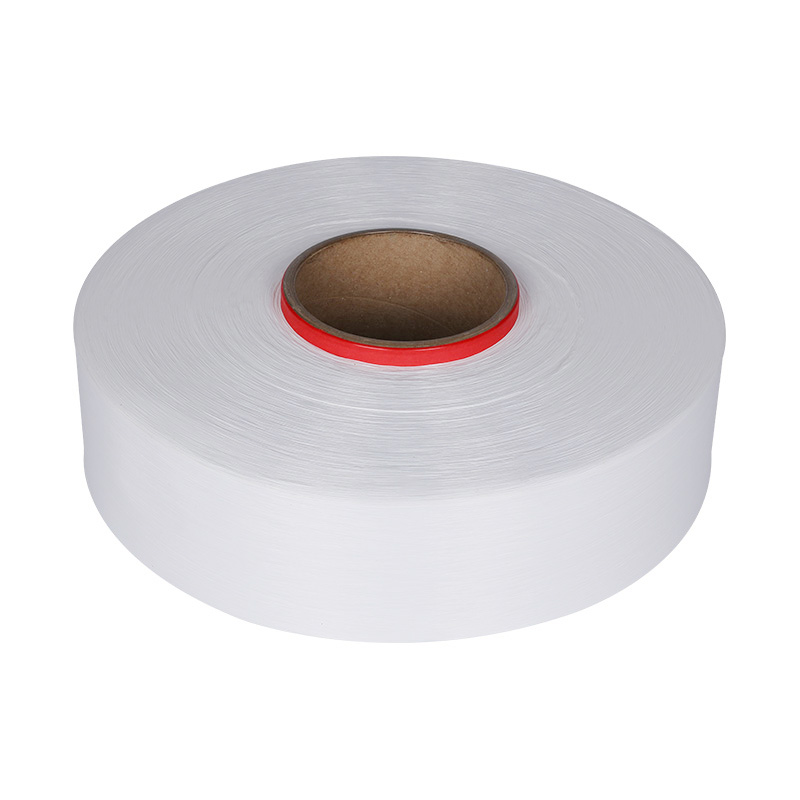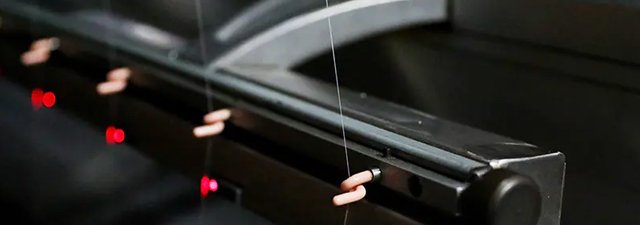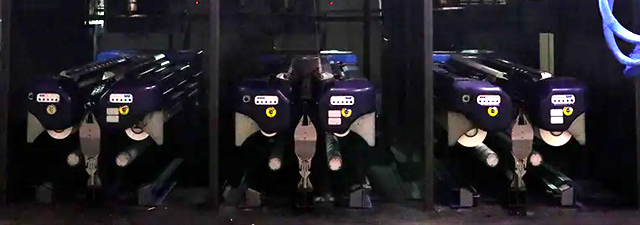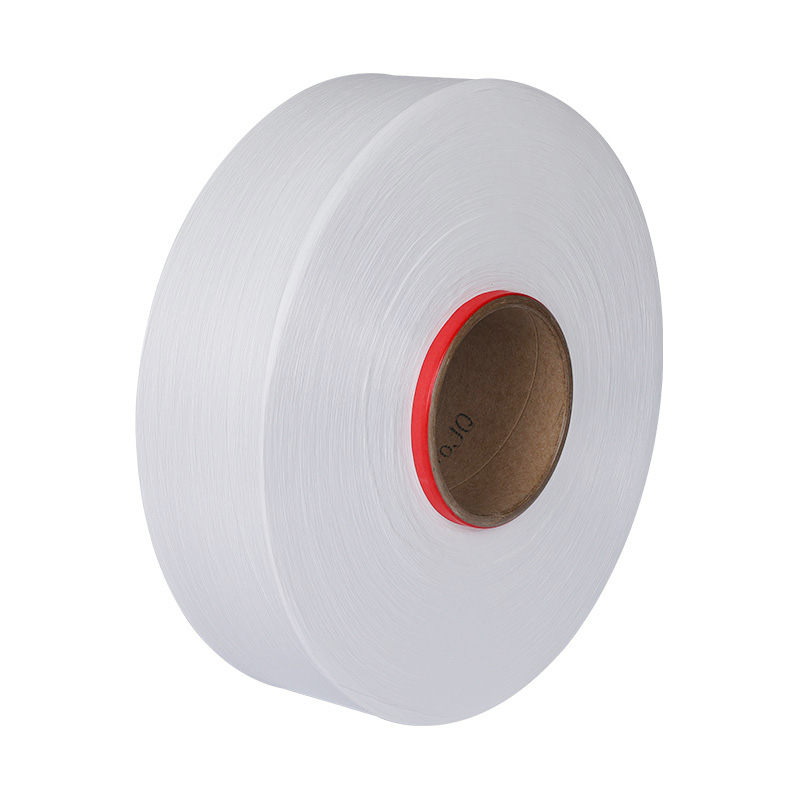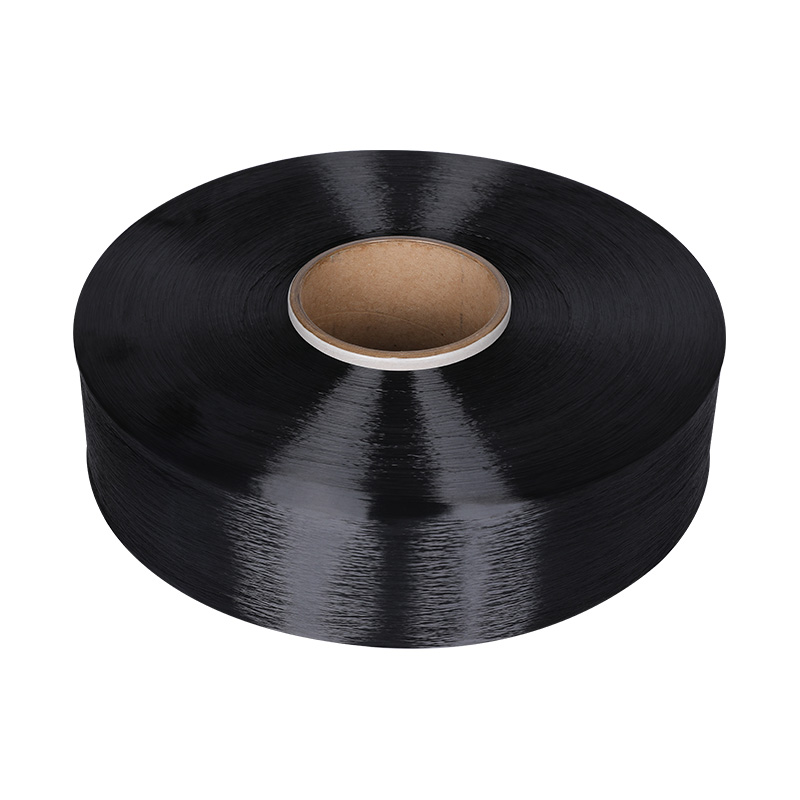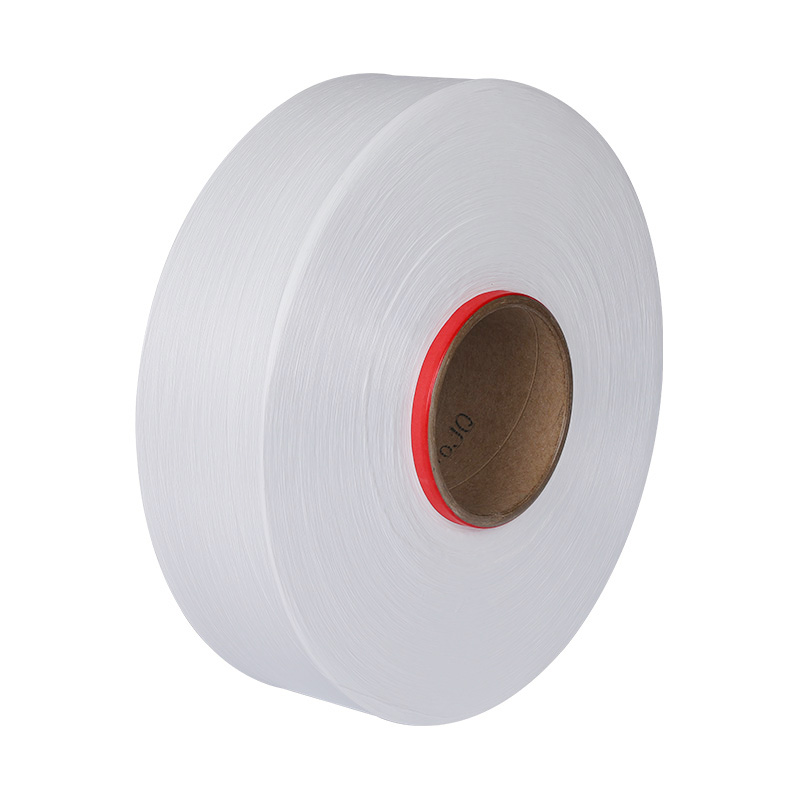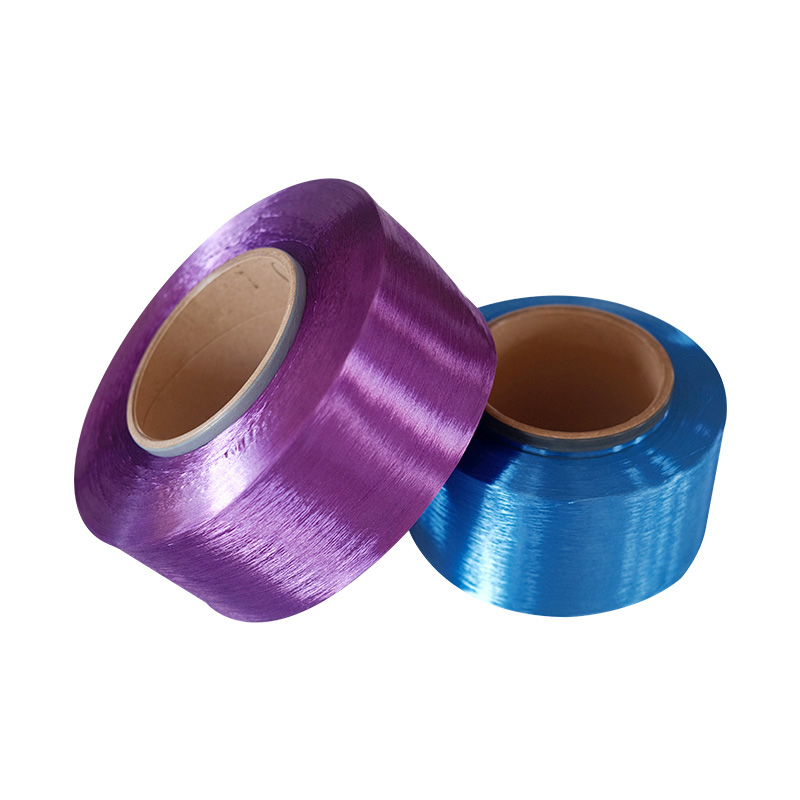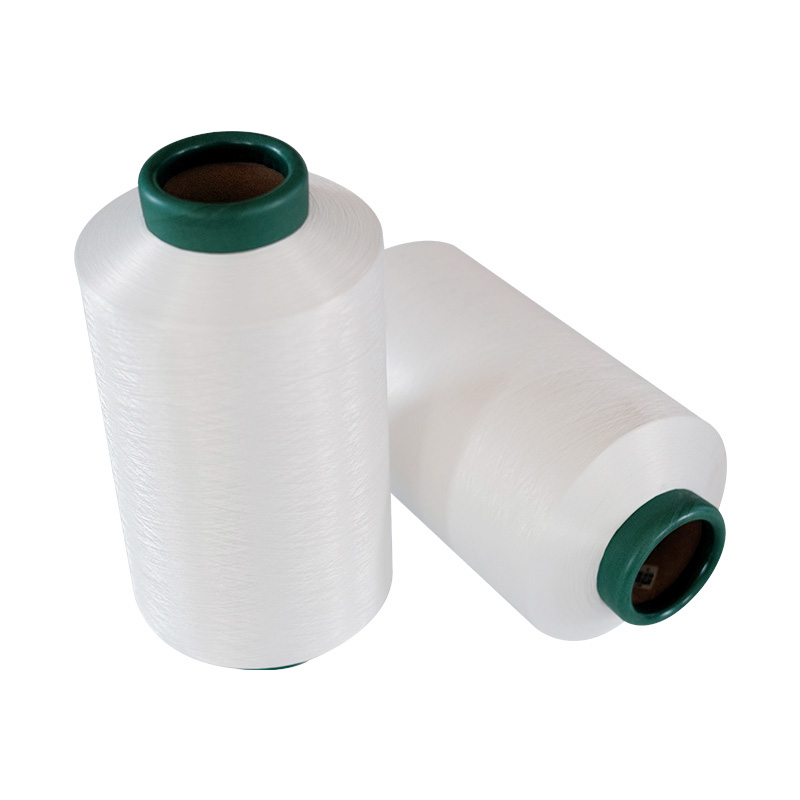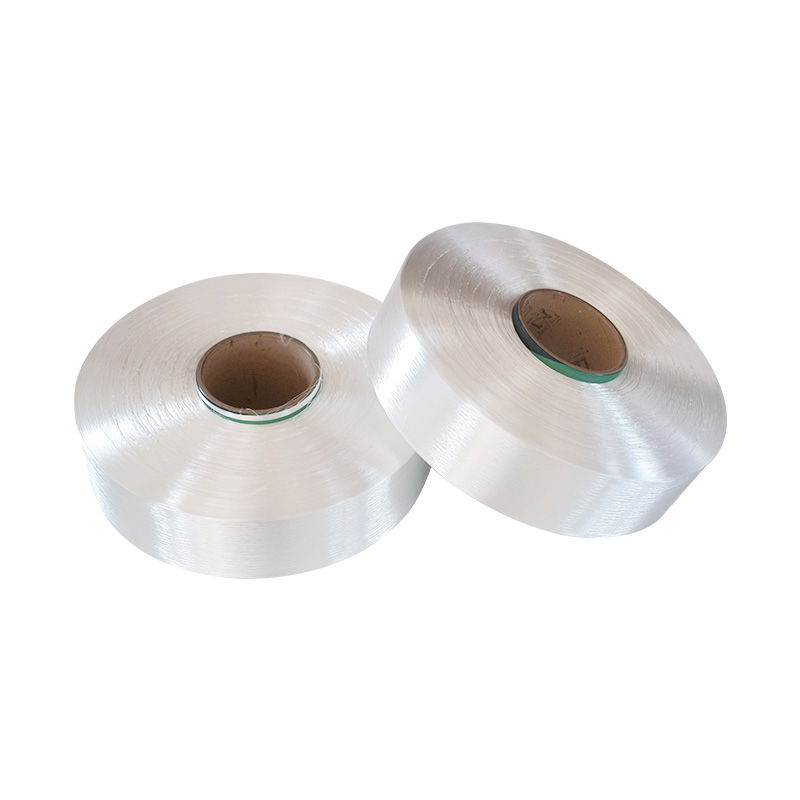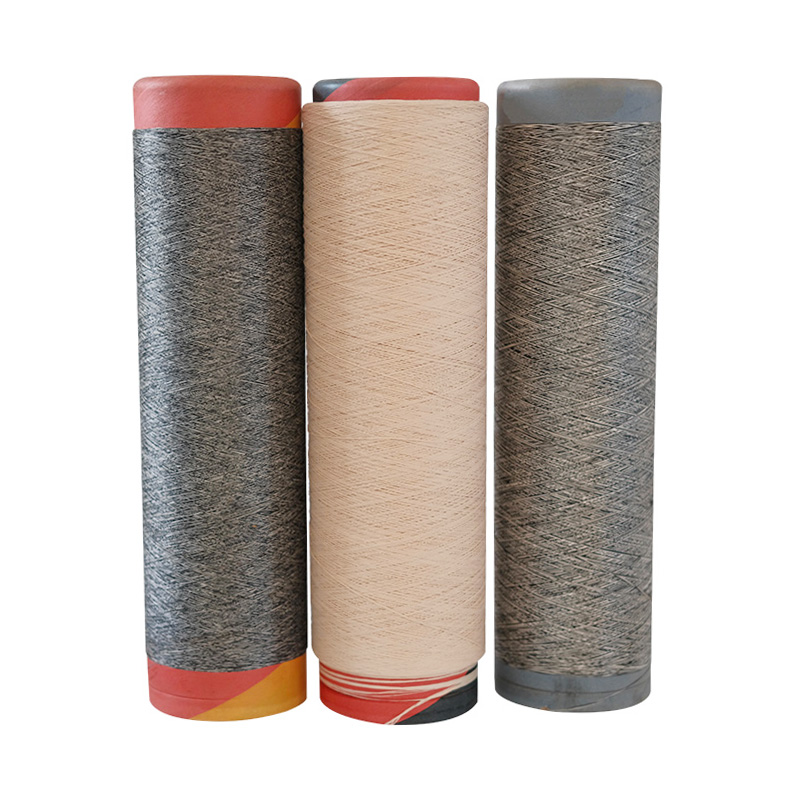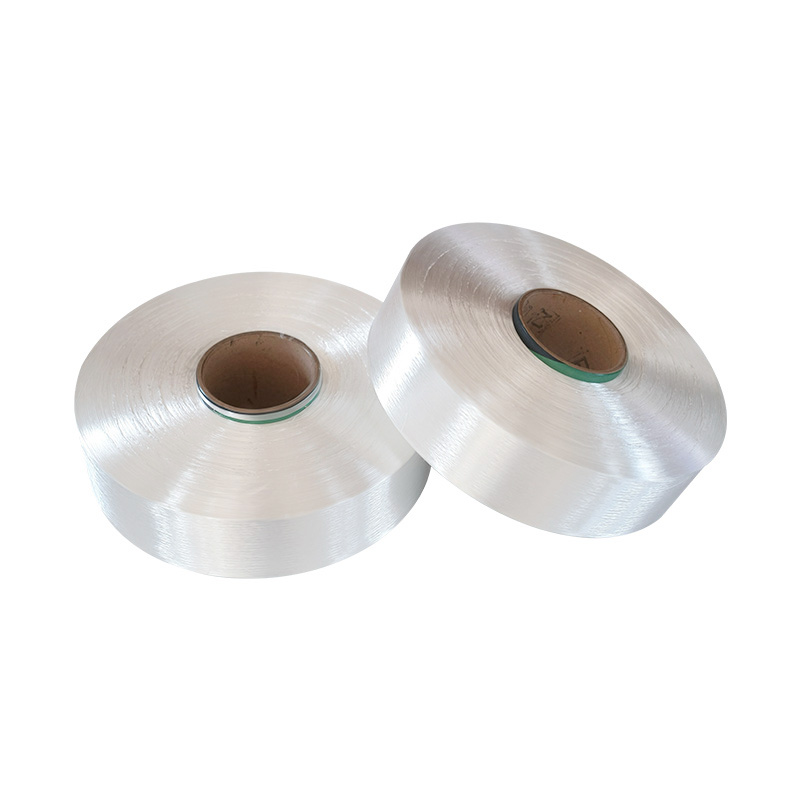Introduction to FDY Flat Yarn Series
The world of textiles is a vast and intricate network, made up of numerous materials each playing a key role in the creation of everyday items, from simple clothing to high-tech industrial fabrics. One such essential material is FDY flat yarn series. This specialized type of yarn is known for its versatility and significance in various textile applications, ranging from the fashion industry to advanced technical textiles. Through its remarkable characteristics and manufacturing processes, FDY flat yarn offers a variety of benefits, making it a central component of modern textile production.
What is FDY (Fully Drawn Yarn)?
FDY (Fully Drawn Yarn) is a type of filament yarn that undergoes a drawing process, where the yarn is stretched to its maximum length during production. This stretching causes the polymer molecules to align in a parallel configuration, providing the yarn with exceptional strength and stability. Unlike other yarn types that may need further processing, FDY is ready for immediate use in both weaving and knitting applications, making it an efficient and cost-effective solution for textile manufacturers.
Understanding Flat Yarn
Flat yarn refers to a filament yarn where the individual filaments remain straight and aligned, as opposed to textured yarns that have twists, crimps, or loops for added bulk. FDY flat yarn stands out with its sleek and smooth surface, making it ideal for creating fabrics with a glossy sheen and elegant finish. Moreover, specialized FDY flat yarn variants are produced through microporous spinning technology, introducing an internal microporous structure within the yarn. This structure further enhances the yarn’s functionality and performance in various applications.
A Brief History and Evolution of FDY Flat Yarn
The development of FDY flat yarn parallels the rise of synthetic fibers, especially in the mid-20th century. With the development of multi-step manufacturing processes, particularly a dedicated drawing stage, FDY was born. This technological evolution, enhanced over the decades, has refined the consistency of FDY, allowing manufacturers to produce yarns with various deniers and filament counts, meeting the diverse needs of modern textile production.
Importance in the Textile Industry
Due to its unique combination of strength, aesthetic appeal, and versatility, FDY flat yarn plays an indispensable role in the textile industry. It serves as a building block for a wide variety of fabric types, providing consistent performance across different sectors. Its easy dyeability and ability to be woven into diverse fabric types have made it a go-to material for manufacturers looking to maintain both quality and performance.
Manufacturing Process of FDY Flat Yarn
The production of FDY flat yarn is an intricate, multi-stage process that starts from raw polymer chips and ends with a finished, usable yarn. This precise process ensures the yarn possesses the specific characteristics needed for a variety of textile applications.
Raw Materials Used
The primary raw materials used in the creation of FDY flat yarn are synthetic polymer chips, predominantly polyester and nylon. These materials are chosen for their inherent strength, durability, and versatility. Depending on the required final properties of the yarn—whether improved elasticity, enhanced feel, or greater strength—other polymers or blends may also be used.
Extrusion Process
The manufacturing process begins with the extrusion of polymer chips. These chips are melted into a liquid form, which is then forced through a spinneret—a metal plate with tiny holes—into continuous filaments. The size and shape of these holes determine both the yarn’s thickness (denier) and its cross-sectional shape, laying the foundation for its future characteristics.
Drawing Process
The drawing process is the most crucial step in producing FDY flat yarn. After the filaments have been extruded and cooled, they are stretched to several times their original length. This stretching causes the polymer chains to align in a parallel arrangement. This alignment is what provides FDY its high tensile strength, low elongation, and overall dimensional stability, making it the ideal choice for demanding applications where strength and stability are essential.
Winding and Packaging
Once the FDY flat yarn has been drawn, it is wound onto bobbins or cones. This step is carried out with great precision to ensure uniform tension and consistency in the final product. Afterward, the yarn is packaged and shipped to manufacturers who will use it for weaving or knitting into various textile products.
Quality Control Measures
Throughout the entire manufacturing process, rigorous quality control measures are implemented. These include testing for consistency in denier, tensile strength, elongation, and dyeability. Such checks ensure that the final product meets the stringent standards required by various textile applications.
Key Properties of FDY Flat Yarn
The distinctive properties of FDY flat yarn make it a preferred choice for a wide range of textile applications. These attributes are a direct result of the meticulous manufacturing process and the polymer composition.
Tensile Strength and Elongation
Tensile strength refers to a material’s ability to withstand stress without breaking. FDY flat yarn is renowned for its high tensile strength, resulting from the parallel alignment of polymer chains during the drawing process. Additionally, FDY has low elongation, meaning it is stable and does not stretch or deform easily, making it ideal for producing fabrics that require durability and dimensional stability.
Denier and Filament Count
Denier measures the thickness or fineness of the yarn. FDY flat yarn can be manufactured in a range of deniers, from very fine to thicker yarns, allowing manufacturers to achieve the desired texture and feel. Filament count, on the other hand, refers to the number of individual filaments that make up a single yarn. This, combined with the denier, influences the yarn’s drape, softness, and coverage.
Dyeability and Colorfastness
One of the standout characteristics of FDY flat yarn is its excellent dyeability. The smooth, uniform structure of the yarn allows it to accept dye efficiently, producing vibrant and consistent colors. Additionally, FDY offers good colorfastness, ensuring that fabrics made from this yarn retain their color after repeated washing or exposure to light.
Shrinkage and Dimensional Stability
Due to the fully drawn nature of FDY flat yarn, it exhibits very low shrinkage. The alignment of the polymer chains gives the yarn its inherent stability, preventing it from shrinking when exposed to heat or moisture. This is a vital property for textiles where size and shape retention are critical, such as home textiles and industrial fabrics.
Texture and Handle
FDY flat yarn produces fabrics with a smooth, uniform surface. The resulting textiles have a soft, sleek, and often lustrous feel, giving them an elegant, high-end appearance. The yarn’s texture and uniformity also contribute to its aesthetic appeal, making it ideal for applications where a clean and polished finish is desired.
Types of FDY Flat Yarn
The broad category of FDY flat yarn includes different types, each defined by the base material and specific properties. The choice of yarn type depends on the intended application.
Polyester FDY
Polyester is the most commonly used material in FDY flat yarn production. Known for its strength, durability, and excellent dyeability, polyester FDY is a cost-effective and versatile material used across various textile sectors.
Nylon FDY
Nylon FDY offers superior elasticity, strength, and abrasion resistance. It is known for its smoother feel and higher luster compared to polyester, making it a popular choice for garments such as hosiery, lingerie, and activewear, where both strength and appearance are important.
Other Material Blends
In addition to polyester and nylon, FDY flat yarn can also be made from blends of different synthetic polymers. These blends are developed to meet specific performance requirements, such as increased elasticity or better thermal properties, making them suitable for niche applications.
Specialty FDY Yarns
Recent innovations have led to the development of specialty FDY yarns that offer enhanced features. Some examples include:
- Anti-static FDY: Prevents static build-up, making it ideal for use in carpets and protective clothing.
- UV-resistant FDY: Formulated to resist UV degradation, perfect for outdoor fabrics like awnings and marine textiles.
- Flame-retardant FDY: Designed to resist fire, making it suitable for fire-resistant apparel and home textiles.
Applications of FDY Flat Yarn
The remarkable properties of FDY flat yarn enable it to be used in a diverse range of applications across various industries.
Apparel Industry
In the apparel industry, FDY flat yarn is used to create smooth, durable, and comfortable fabrics for garments. Its strength and low stretch make it ideal for high-performance activewear, while its sleek texture and luster are valued in lingerie and hosiery production. Additionally, FDY fabrics are resistant to wrinkles and shrinkage, making them a popular choice for casual wear.
Home Textiles
FDY flat yarn is widely used in the production of home textiles, particularly in curtains, drapes, and upholstery. Its dimensional stability ensures that fabrics retain their shape, and its durability guarantees longevity even with frequent washing. Moreover, FDY is an excellent choice for bedding, where it creates soft yet robust sheets and pillowcases.
Industrial Fabrics (Technical Textiles)
In the industrial sector, FDY flat yarn is crucial for manufacturing technical textiles. These include conveyor belts, filtration fabrics, and protective clothing, where strength, durability, and resistance to environmental factors are paramount. The precise and stable nature of FDY yarns enables consistent production of such high-performance materials.
Sportswear and Activewear
Sportswear demands fabrics that are not only strong and flexible but also moisture-wicking and comfortable. FDY flat yarn meets these criteria by offering high tensile strength and low elongation, which help maintain garment shape during intense physical activity. Its excellent dyeability also allows for vibrant, attractive sportswear designs.
Other Specialized Uses
Apart from the above, FDY flat yarn finds use in specialty products such as medical textiles, automotive fabrics, and outdoor gear. Its adaptability and ability to be engineered for specific properties make it invaluable in these niche fields.
Advantages of Using FDY Flat Yarn
Utilizing FDY flat yarn in textile production offers several distinct advantages, helping manufacturers produce high-quality, durable, and aesthetically pleasing fabrics.
High Durability
Thanks to its molecular alignment, FDY flat yarn boasts excellent tensile strength and abrasion resistance, translating into fabrics that last longer and maintain their integrity over time.
Cost-Effectiveness
Since FDY yarn is ready for use immediately after production (without further texturizing or processing), it reduces manufacturing steps and costs. This efficiency benefits both producers and consumers.
Versatility Across Applications
The ability to produce FDY flat yarn in varying deniers and filament counts allows manufacturers to tailor the yarn to specific needs, from lightweight, silky fabrics to heavier, more robust materials.
Enhanced Fabric Appearance
The smooth, flat structure of FDY yarn creates fabrics with a glossy, clean finish. This is especially important in fashion and home textiles, where aesthetic appeal is a key consideration.
Environmental Benefits
Some manufacturers are now producing FDY flat yarn using recycled polyester or other sustainable materials, reducing the environmental footprint of textile production.
Challenges and Limitations
Despite its many benefits, FDY flat yarn also presents some challenges that manufacturers must navigate.
Limited Elasticity
Due to its fully drawn nature, FDY flat yarn has low elasticity, which can limit its use in applications requiring high stretch unless blended with other yarn types.
Surface Smoothness and Slipperiness
The smooth surface of FDY can sometimes cause issues in fabric handling and processing, such as lower friction, which may complicate weaving or knitting.
Environmental Concerns
Although recycling initiatives exist, the production of synthetic FDY yarns from petrochemicals raises sustainability concerns.
Processing Challenges
Special machinery and precise control are necessary during manufacturing, which can increase initial investment costs.
Innovations and Future Trends
The textile industry is constantly evolving, and FDY flat yarn continues to be at the forefront of innovation.
Eco-Friendly and Recycled Yarns
There is growing demand for eco-conscious textiles. Innovations include producing FDY from recycled PET bottles or bio-based polymers, combining performance with sustainability.
Smart Textiles Integration
Researchers are exploring embedding electronic components within FDY yarns, leading to fabrics capable of sensing, heating, or changing color in response to stimuli.
Improved Functionalities
New finishes and coatings are being developed to impart anti-bacterial, anti-odor, and moisture management properties directly onto FDY flat yarn.
Advanced Manufacturing Techniques
The introduction of microporous spinning technology and other advancements improves yarn uniformity, breathability, and comfort.
Conclusion
FDY flat yarn series represents a crucial component in modern textile production due to its strength, versatility, and attractive finish. From apparel to industrial applications, its benefits support the creation of high-quality fabrics tailored to diverse needs. While challenges exist, ongoing innovations in material science and manufacturing processes continue to expand the capabilities and sustainability of FDY flat yarn. As the textile industry embraces advanced technologies and eco-friendly approaches, FDY flat yarn is poised to remain an essential material in the future of fabrics.
 +86-0571-82795522
+86-0571-82795522 
 LANGUAGE
LANGUAGE 
 English
English